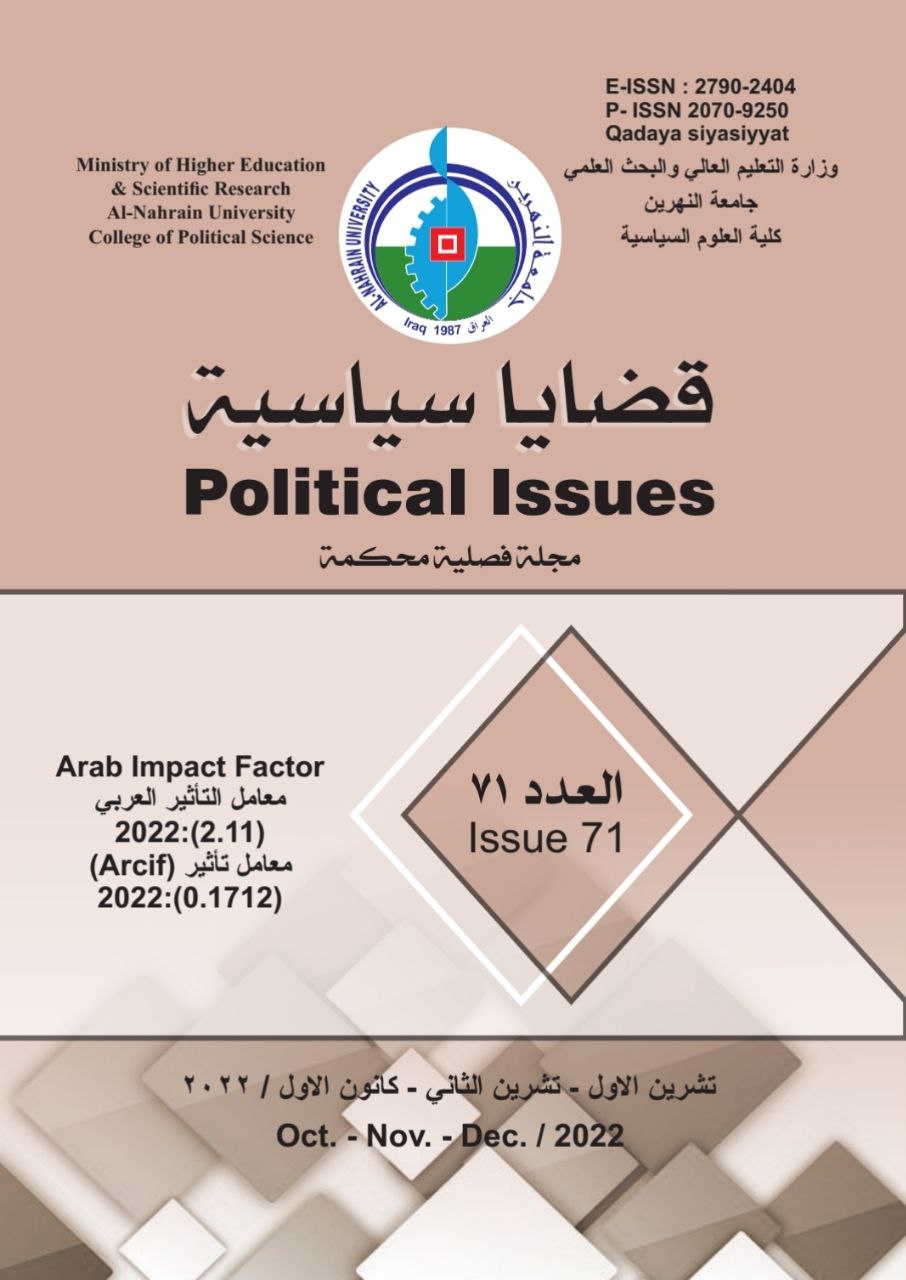The United Nations and international humanitarian intervention, a case study: northern Iraq - Kosovo province
DOI:
https://doi.org/10.58298/2022270Keywords:
United Nations, international humanitarian intervention, Kosovo region, northern IraqAbstract
The issue of humanitarian intervention can be considered one of the mechanisms practiced by major countries to interfere in the internal affairs of smaller countries, impose their policies and violate the sovereignty of the counterpart, so it can be considered a pretext for violating the sovereignty of states, and also that countries that contain ethnic diversity are more vulnerable than others to interference, under the pretext The protection of minorities or any specific group from persecution to which they are exposed at the hands of the central authority or the majority, which often resulted in an increase in internal division and even a large emigration of minorities. The principle of non-interference in internal affairs is reduced to the principle of the right of humanitarian intervention, and this has clear applied examples, and that the provision of humanitarian assistance is no longer at the core of national competence despite the active role of organizations. Therefore, the study examined the United Nations and international human intervention by studying the cases of northern Iraq and the Kosovo region, in order to Identifying the nature of international humanitarian intervention, its legal basis, and the extent of its effectiveness in the current reality.
Downloads
Published
Issue
Section
License

This work is licensed under a Creative Commons Attribution 4.0 International License.
This is an Open Access article distributed under the terms of the creative commons attribution (CC BY) 4.0 international license which permits unrestricted use, distribution, and reproduction in any medium or format, and to alter, transform, or build upon the material, including for commercial use, providing the original author is credited.






